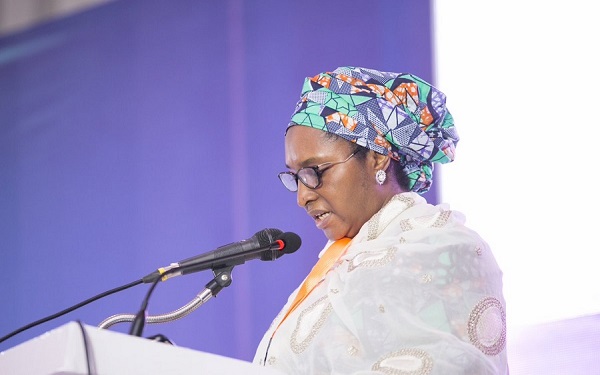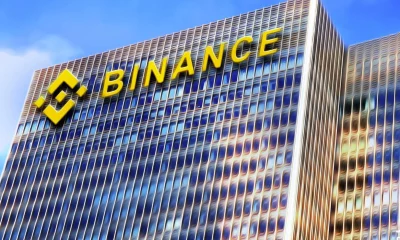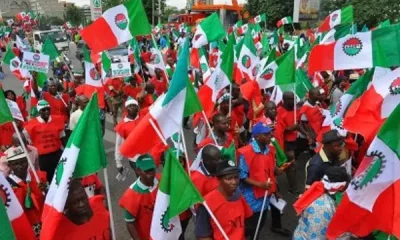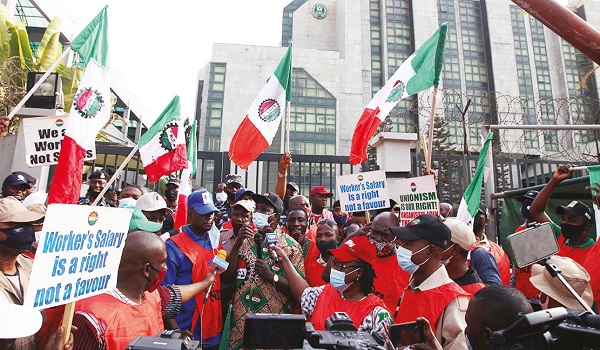Despite the anger being expressed by Nigerians over the growing debt profile of the country, the Federal Government has disclosed that it will borrow to fund the N6.258 trillion deficit in the 2022 Budget.
The Minister of Finance, Budget and National Planning Mrs. Zainab Ahmed, made the disclosure on Wednesday.
“The resultant deficit of N6.258 trillion will be financed by new borrowings of N5.012 trillion (of which domestic – N2.506 trillion and foreign – N2.506 trillion); drawdowns on Project-tied Multilateral/Bilateral loans – N1.156 trillion; and Privatisation Proceeds of N90.73 billion,” she explained.
The minister allayed fears over government’s “excessive borrowing” complaints, saying “as at July, the total borrowing is 23 per cent of Gross Domestic Product (GDP) limits.”
Mrs Ahmed spoke on the final full budget to be implemented by President Muhammadu Buhari Administration before its exit in 2023, after the Federal Executive Council (FEC) meeting.
Before giving its final approval, FEC reduced the total budget from N16.45 trillion to N16.39 trillion. The total revenue projected to N10.11 trillion bringing down the deficit to N6.2trillion.
The financial estimates will be presented to the joint sitting of the National Assembly today by the President.
The minister said: “If we just depend on the revenues that we get, even though our revenues have increased, the operational expenditure of government, including salaries and other overheads, is barely covered or swallowed up by the revenue.
“So, we need to borrow to be able to build these projects that will ensure that we’re able to develop on a sustainable basis.
“Nigeria’s borrowing has been of great concern and has elicited a lot of discussions, but if you look at the total size of the borrowing, it is still within healthy and sustainable limits. As at July 2021, the total borrowing is 23% of GDP.
“When you compare our borrowing to other countries, we’re the lowest within the region, lowest compared to Egypt, South Africa, Brazil, Mexico, the very lowest, and Angola.
”We have a problem of revenue. Our revenues have been increasing. We just reported to Council that our revenues from non-oil sector has performed, as July, at the rate of 111%, which means outperforming the prorated budget.
“But our expenditure, especially staff emoluments have been increasing at a very fast rate making it difficult to cope with funding of government.
”So, what we have to do is a combination of cutting down our cost, as well as increasing revenue to be able to cope with all that is required for government to do, including salaries, pensions debt service, as well as capital expenditure”, she explained.”
She added that that President Buhari is resolved to complete his legacy projects.
“Currently, agriculture sector contributes 23% of the GDP. We have record of expanding the agricultural value chain; we’ve had very little or no processing in agriculture until this administration.
“We now have a very large number of fertiliser blending plants, about 42, that are operating at full capacity. We also have a large number of rice mills that didn’t exist before.
”We have a lot of Nigerians that have taken up agriculture as a business, but apart from agriculture, the President is also rolling out rail lines, some of which had been started several years ago, have been completed.
“The Lagos/Ibadan rail line is now put to use. We all know about the Abuja/Kaduna and also the Itakpe/Warri rail line has been completed. Work has kicked off on the Kano to Kaduna end of the Lagos/Kano/Ibadan rail line.
“So, Mr. President wants to leave these rail lines. Rail is very important because it is a major means of moving goods across the country. When the rail lines are completed, it will provide much needed relief in terms of movement of goods that our roads now suffer by use of trucks.
”We are also investing in deployment of major roads. Some of them are completed, some are at various levels of completion. There’s also the 2nd Niger Bridge that is also going to be completed during the tenure of this administration.
”The major projects that I just mentioned are fully provided for in the budget. The Federal Ministry of Works and Housing has a provision of N388 billion; the Power sector has about N377 billion; the Ministry of Agriculture has N98 billion; the Transportation Ministry has N189 billion.
“All the major projects are provided for. The target is to make sure that we have some of these key projects completed and commissioned during Mr. President’s tenure.”
On the difference between the price of crude oil and the $57 benchmark for the 2022 Budget, Mrs. Ahmed said “you know that the crude oil price in the international capital market is not stable, it goes up and it comes down.
”Our assessment is that $57 per barrel is a safe zone to be in and we did this after extensive consultations with CBN, we checked the research work of the World Bank and other institutions, whose concern is investigating and researching on crude oil prices. But you know, the revenue in the budget for oil and gas is a function of the level of production as well as the price.
”We suffered some setbacks in terms of level of production, occasioned by the limits that the OPEC set. But thankfully, OPEC has changed our quota and that will also soon ramp up.
”In the event that revenues from oil and gas outperform the budget, there is always the safeguard that the excess goes into the Excess Crude Account. If that happens, we have not witnessed that in the past one and a half years because the revenues have been very cyclical”, she said.
On the approved 2022 Appropriation Bill for an aggregate expenditure of N16.39 trillion for 2022, she gave the components as the adjustments to the Medium-Term Fiscal Framework 2022-2024; Statutory Transfers of N768.28 billion and Debt Service of N3.61 trillion and Sinking Fund for Maturing Debts of N292.71 billion Naira.
Other are Recurrent Expenditure (Non-Debt) of N6.83 trillion, inclusive of N350.0 billion for the recurrent component of Social Investment Programme; and Aggregate Capital Expenditure of N5.35 trillion, inclusive of GOEs’ capital expenditure, multilateral/bilateral loan funded projects, Capital Supplementation and Grants/Aid funded projects.
She also said that FEC noted the changes in the 2022-2024 fiscal projections based on implementation of the Petroleum Industry Act 2021 and other necessary expenditures that should be accommodated in the 2022 Budget.
She listed key assumptions and targets underlying the budget provisions as follows:
Oil price – $57 per barrel; Oil production – 1.88 mbpd; Exchange rate – N410.15/US$; Oil Revenue – N3.15 trillion and Non-Oil Revenue – N2.13 trillion.
Others she gave are Federal Government’s Independent Revenue of N1.82 trillion; Total Projected Federal Government Revenue of N10.13 trillion; Debt Service of N3.61 trillion; Statutory Transfers of N768.28 billion (including N462.53 billion capital component) and
Personnel costs and Pensions of N4.69 trillion; (inclusive of N617.72 billion for the 63 GOEs).
The rest are Overhead costs of N792.39 billion (inclusive of N451.0 billion for the 63 GOEs); and Capital expenditure (inclusive of capital component of Social Investment Programme, capital in Statutory Transfers, capital of 63 GOEs, Capital Supplementation as well as Grants and Donor funding) of N5.35 trillion(inclusive of N647.08 billion for the 63 GOEs).
National Assembly passes revised fiscal framework
The Senate and the House of Representatives approved the revised MTEF/FSP.
Buhari’s request for the revision of the MTEF was received by the Senate on Tuesday and referred to the Committee on Finance after suspension of relevant rules of the upper chamber.
The Senate approved the N16.39trillion as projected aggregate expenditure for 2022 as recommended by the committee.
The Senate also approved the retained revenue of the Federal Government of N10.3 trillion; and an additional N635.4 billion fiscal deficit, bringing the total fiscal deficit for 2022 to N7.91 trillion.

 News3 years ago
News3 years ago
 Entertainment2 years ago
Entertainment2 years ago
 News3 years ago
News3 years ago
 Privacy3 years ago
Privacy3 years ago
 Sports2 years ago
Sports2 years ago
 Entertainment2 years ago
Entertainment2 years ago
 Opinion3 years ago
Opinion3 years ago
 News3 years ago
News3 years ago













